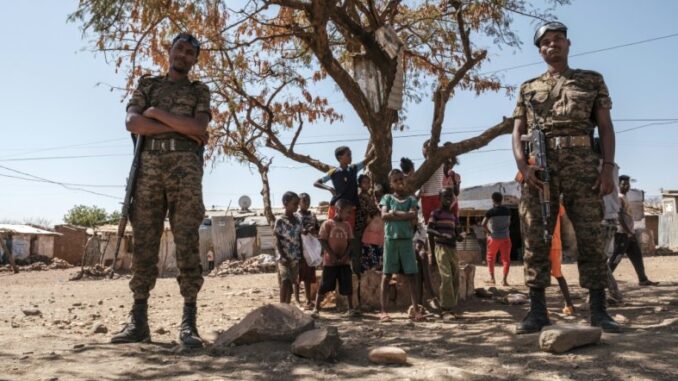
The rebel authorities in Tigray said on Sunday that they agreed to a “ceasefire in principle” in this region of northern Ethiopia, which they have largely regained control of, while setting conditions that make a formal agreement with the government difficult.
Will the Ethiopian leaders accept the conditions set by the rebel authorities in Tigray? On Sunday, July 4, the rebels agreed in principle to a cease-fire, but they are demanding the withdrawal of Eritrean and Amhara forces, which are supporting the Ethiopian army in the military operation it has been conducting for the past eight months against the former regional government, as well as the reinstatement of this government, which is considered dissident by Addis Ababa.
Tigray has been the scene of fighting since Prime Minister Abiy Ahmed sent the army in early November to topple the local government, which was formed by the Tigray People’s Liberation Front (TPLF). The 2019 Nobel Peace Prize winner accused these leaders of orchestrating attacks on military bases.
Will the Ethiopian leaders accept the conditions set by the rebel authorities in Tigray? On Sunday, July 4, the rebels agreed in principle to a cease-fire, but they are demanding the withdrawal of Eritrean and Amhara forces, which are supporting the Ethiopian army in the military operation it has been conducting for the past eight months against the former regional government, as well as the reinstatement of this government, which is considered dissident by Addis Ababa.
Tigray has been the scene of fighting since Prime Minister Abiy Ahmed sent the army in early November to topple the local government, which was formed by the Tigray People’s Liberation Front (TPLF). The 2019 Nobel Peace Prize winner accused these leaders of orchestrating attacks on military bases.
First, those who now call themselves the “Government of Tigray” are demanding the withdrawal of Eritrean forces and Amhara militias to their home territories and an end to their interference in the Ethiopian conflicts.
Secondly, they demand that the Ethiopian Prime Minister and the Eritrean President “be held accountable” for the crimes committed since November, on the basis of a UN investigation. Then free access for humanitarian aid; restoration of telecommunications, electricity, banking, airlines and other public services; recognition of the legitimacy and rights of the government of Tigray, as well as the framework of the federal constitution for political dialogue; release of Tigrayan prisoners and an end to the harassment of Tigrayans in the country; and the establishment of an “independent international entity” to oversee the cease-fire.
